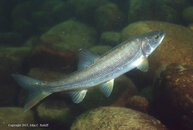Some states allow you to do the Driving test with a 3rd party and most happen to be driving schools. Not sure about Drivers License in CA but I know you can do it for the motorcycle endorsement in CA.I’m going to try and answer your very poorly written post.
Are you saying that in Montana you can have a private driving instructor also sign you off and issue you a state of Montana drivers license?
In California you take drivers ed in high school, or you go to a driving school, and/or you get a learners permit and your parents or somebody else teaches you how to drive. Then when you turn 16 and you feel you’re ready, you go to DMV (state agency) and take the written test and go for a drive with an examiner. If you pass both of these tests to their standards then you get your license.
You are using an out of date browser. It may not display this or other websites correctly.
You should upgrade or use an alternative browser.
You should upgrade or use an alternative browser.
If you were to redo the scuba industry how would you do it?
- Thread starter Eric Sedletzky
- Start date
Please register or login
Welcome to ScubaBoard, the world's largest scuba diving community. Registration is not required to read the forums, but we encourage you to join. Joining has its benefits and enables you to participate in the discussions.
Benefits of registering include
- Ability to post and comment on topics and discussions.
- A Free photo gallery to share your dive photos with the world.
- You can make this box go away
The ones doing that just don't care. And the reason why id say it will kill it is....Maybe the goal could be not just reducing deaths and injuries but producing more skillful and responsible divers, who have the ability and desire not to crash into the reef, who are more likely to act as good buddies when buddy diving, etc. There are so many threads discussing what makes a good diver and how to teach that. The agencies' standards are fine; they don't need to be made more stringent, just adhered to more objectively. Here we have a thread that suggests separating training from certification as a way to produce better divers. I don't see it happening, but I think the idea has merit in theory and would not "kill scuba."
Not me just a made-up scenario.
I am a 19 year old wanting to learn how to dive in MT SD ND and so on I go in to a local diving shop and they tell me I will have to do all the normal stuff but to get certified I now have to travel to another state or even in a big state say TX 6-7H to the testing facility. and the test will be a extra 600. on top of that it will be 2 months tell they have a open appointment or I will need to go all the way to say FL. So as a broke kid I need the 300-500 for the class another 300-600 for the test and 1000 plus in travel/time off.
This is why it kill diving.
We be better off making a actual scuba police and issuing large fines for destroying the reef.
OP
Eric Sedletzky
Contributor
Yes, there would be a regular certification, which by the way wouldn’t be any different than a proper by the book course as outlined by an WRSTC affiliated agency now. So in that respect separating education and certification would change nothing really except you would have to go to two different places, that’s all. And it may cost you more money, oh well. What it would change is the lazy ass instructing that goes on and the resulting incompetence and fake cards, because THEY wouldn’t be able to certify you, the other place does that.How about two different types of certification? One like you described (very nice, by the way) and one more designed for the "dive once a year on vacation" tribe.
I guess there would have to be some kind of definitive cut off between the two but this raises a whole slew of issues. Too many for me to deal with on the A train.
As far as resorts, they could do pretty much what they are doing now except it wouldn’t be a full blown certification, more like an advanced discover scuba. They would still have to dive with a DM.
But, all this would count as experience and if they worked on their skills on their own in a pool and maybe went diving at home with a certified buddy or DM and got good enough, they could go take the test and if they pass they get a full blown proper OW cert. they just need to prove to the testing agency that they know what they’re doing by passing all the required tests, that’s it.
I’m going to try and answer your very poorly written post.
Are you saying that in Montana you can have a private driving instructor also sign you off and issue you a state of Montana drivers license?
In California you take drivers ed in high school, or you go to a driving school, and/or you get a learners permit and your parents or somebody else teaches you how to drive. Then when you turn 16 and you feel you’re ready, you go to DMV (state agency) and take the written test and go for a drive with an examiner. If you pass both of these tests to their standards then you get your license.
In Arizona, you can get a road test waiver from a licensed driving instructor / school. I did.
OP
Eric Sedletzky
Contributor
Actually, there are very few or no high schools in CA that have drivers ed anymore I found out. I thought they still did it I was wrong. That program was cut a long time ago. Maybe a few private schools still have it IDK?FL might be a bit of a hybrid between CA and MT (at least as described). There are private driving schools, and most are just for instruction. You still have to take the test with a DMV instructor.
Driver’s Ed classes in school are a bit different. The instructors in those course are approved by the state to administer the driving test. So, upon completion, they have access to enter the results into the DMV database. Then you go to the DMV, pay the fee, show proof of insurance, have picture taken, and that’s it.
I took drivers ed in HS in 1977, things were different then. Now it’s driving schools and/or self gleaned information and a learners permit.
DMV still does all the testing and licensing.
Johndiver999,Commenting on a whole industry is pretty challenging.
What I would say is that the current industry would benefit from better marketing to young people. I know there are huge economic challenges for that demographic, but if you rely almost completely on old fat people who are dying off or who no longer find hauling tanks to be fun, your future is limited.
The obesity epidemic (in the developed world) makes the activity much less safe and enticing.
I watch TV and see social media being used extremely effectively to promote certain ideals, perspectives and even behaviors, some of which I personally find bizarre or even offense. Nevertheless, these “marketing” efforts seem to be reaching people and for the most part, must be successful.
Not sure I know exactly “how” to accomplish this marketing to the younger generations, but it doesn’t appear to be taking place right now.
Lastly, I don’t think an industry can be robust if it concentrates on training people to dive. The industry must find a way to promote the activity of diving itself.
Your comment above hit it exactly; I became excited as a young teen at the prospect of actually breathing underwater, and floating weightless in the water. Let me share with you a poem I wrote about my first experiences with diving:
A Boy Enthralled with SCUBA Diving
As a boy, I'd sit in church,
Admiring the roof,
And dream of flying,
Or floating, as if in a spoof.
I wouldn't be listening
To the sermon of the day,
But float in air
Sixty feet above the manger's hay.
Peter Pan flew like that,
Floating in the air.
In my imagination, I'd do spins
and rolls and look down at the chair.
Later, when I learned to scuba dive
I'd put on my fins
and blow bubbles
into the winds.
I learned a lot in church,
At Sunday School and Confirmation,
But when the sermon got boring,
I'd float away in a subaqua, fantasy vision.
At that time, we didn't have to "promote diving," as Captain J.Y. Cousteau did that for us, first with his movies, The Silent World and World Without Sun, then with his television documentaries showing the world the wonders of undersea life.
Now, that is largely gone, and we have nothing really promoting SCUBA diving except exotic travel. But I grew up in wonder at the sights right here in Oregon, of trout and salmon in our lakes and streams, of small invertebrates which kept the aquatic ecosystem in balance, of algea streaming in the current, of rocks hiding small critters, from crawdads to insect larva to small bottom fish, shiners and darters. I have witnessed things that other divers don't even notice, like lampreys spawning, the mussels releasing their glochidia into the water, where they clamp onto a fish's gills and fins, of a hydra on a leaf in autumn feeding on almost microscopic plankton in the river, of a very startled sturgeon coming face to face with me as I drifted downstream. These are things that make diving to me interesting. Hopefully, they can also do so for other divers.
SeaRat
Attachments
I would recommend going to this driving school: Home - DirtFishActually, there are very few or no high schools in CA that have drivers ed anymore I found out. I thought they still did it I was wrong. That program was cut a long time ago. Maybe a few private schools still have it IDK?
I took drivers ed in HS in 1977, things were different then. Now it’s driving schools and/or self gleaned information and a learners permit.
DMV still does all the testing and licensing.
gmerick
Contributor
But diving is not driving a car. I'm not sharing a public road. There's no traffic laws for diving.
Diving is like using a firearm or rock climbing. Without training it's a high risk sport. Done improperly, it can increase fellow participants risk.
Done with a known buddy or solo, it's a hobby that has minimal or nominal impact to bystanders and great enjoyment to the diver. Without adopting good training, skills, and attitudes it's simply another way of cleansing the gene pool.
Gun ranges and climbing resorts each have minimal requirements to keep the places safe, and minimize the likelihood of adverse news stories. Both tend to trust but verify their participants.
Shooting in a ravine on private land, or climbing in public wilderness is almost completely unregulated, and for the most part unknown to everyone else.
No, we don't need a burocracy with licencing, regulatory agencies, and fees, lots of fees.
I've taken at least one cert class a year simply to keep my skills and attitudes fresh. I have a good size deck of plastic, and I show dive operators the minimum necessary for the intended dive opportunity. I'm not going to follow an insta-buddy on high-current swimthrough at 50M. I'll try to advise that buddy against it, but my training is there give ME the best opportunity to enjoy the ocean, and return to the boat for another dive.
Diving is like using a firearm or rock climbing. Without training it's a high risk sport. Done improperly, it can increase fellow participants risk.
Done with a known buddy or solo, it's a hobby that has minimal or nominal impact to bystanders and great enjoyment to the diver. Without adopting good training, skills, and attitudes it's simply another way of cleansing the gene pool.
Gun ranges and climbing resorts each have minimal requirements to keep the places safe, and minimize the likelihood of adverse news stories. Both tend to trust but verify their participants.
Shooting in a ravine on private land, or climbing in public wilderness is almost completely unregulated, and for the most part unknown to everyone else.
No, we don't need a burocracy with licencing, regulatory agencies, and fees, lots of fees.
I've taken at least one cert class a year simply to keep my skills and attitudes fresh. I have a good size deck of plastic, and I show dive operators the minimum necessary for the intended dive opportunity. I'm not going to follow an insta-buddy on high-current swimthrough at 50M. I'll try to advise that buddy against it, but my training is there give ME the best opportunity to enjoy the ocean, and return to the boat for another dive.
SlugLife
Contributor
I'd establish an "open source" or "non profit" training agency, effectively eliminating the giant cut training agencies take from a number of scuba-classes. At least for OW and AOW and local prices, about half of the cost goes to the agency itself, leaving the dive-shop, instructor, and expenses to fight over the scraps.
drrich2
Contributor
A few things.
1.) Broaden certification and LDS water sport offerings to include swimming, free diving, snorkeling and spear fishing, so as to draw in a broader segment of divers. Free diving could appeal as a cheaper way to start diving, and given people a glimpse at what they could see with SCUBA. Spear fishing has some appeal to hunters.
2.) Quit indoctrinating people with the buddy Koolaide. It wasn't so long ago a number of people on ScubaBoard would speak out against anyone posting about solo diving...because they were solo diving, and that's just wrong! Some of these people have been so indoctrinated it's become a matter of faith with them. Even some seasoned divers remain against it, not just as something they choose not to do, but against other people doing it!
Think about our frustration with the liability risk and dive services provider insurance situation. We often post about the need to leave the responsibility for the risks of diving with the diver. No one else is your baby sitter. You are a certified diver, and it's on you to dive within your abilities.
Sounds great, right? But then from the start we indoctrinate people diving is too dangerous to do alone. Then they go on dive trips where they're accustomed to being led by a guide (I have no problem with that) called a 'dive master,' who often seems to mother hen them.
It's fine to teach buddy diving, and encourage is as a risk mitigation strategy, but not the end all, be all of diving. If we want people to be responsible for themselves, let's act like it's possible to dive without a caretaker.
3.) Put more risk content in training materials. Not unlike the SDI Solo liability release. Don't teach people diving is too safe. It ought to be safe enough, but things happen.
4.) Get more big tanks out there. How many air hog threads do we read? These folks are criticized for not being relaxed enough, not experienced enough, told to take up yoga breathing techniques, etc... Nobody criticizes a lean woman who can' get by with a 60-cf tank, though. Let's see more steel 120's out there (and fill the 100-cf tanks to 3,300 PSI, not 3,000).
1.) Broaden certification and LDS water sport offerings to include swimming, free diving, snorkeling and spear fishing, so as to draw in a broader segment of divers. Free diving could appeal as a cheaper way to start diving, and given people a glimpse at what they could see with SCUBA. Spear fishing has some appeal to hunters.
2.) Quit indoctrinating people with the buddy Koolaide. It wasn't so long ago a number of people on ScubaBoard would speak out against anyone posting about solo diving...because they were solo diving, and that's just wrong! Some of these people have been so indoctrinated it's become a matter of faith with them. Even some seasoned divers remain against it, not just as something they choose not to do, but against other people doing it!
Think about our frustration with the liability risk and dive services provider insurance situation. We often post about the need to leave the responsibility for the risks of diving with the diver. No one else is your baby sitter. You are a certified diver, and it's on you to dive within your abilities.
Sounds great, right? But then from the start we indoctrinate people diving is too dangerous to do alone. Then they go on dive trips where they're accustomed to being led by a guide (I have no problem with that) called a 'dive master,' who often seems to mother hen them.
It's fine to teach buddy diving, and encourage is as a risk mitigation strategy, but not the end all, be all of diving. If we want people to be responsible for themselves, let's act like it's possible to dive without a caretaker.
3.) Put more risk content in training materials. Not unlike the SDI Solo liability release. Don't teach people diving is too safe. It ought to be safe enough, but things happen.
4.) Get more big tanks out there. How many air hog threads do we read? These folks are criticized for not being relaxed enough, not experienced enough, told to take up yoga breathing techniques, etc... Nobody criticizes a lean woman who can' get by with a 60-cf tank, though. Let's see more steel 120's out there (and fill the 100-cf tanks to 3,300 PSI, not 3,000).
Similar threads
- Replies
- 2
- Views
- 629
- Replies
- 9
- Views
- 1,716
- Replies
- 54
- Views
- 5,030








